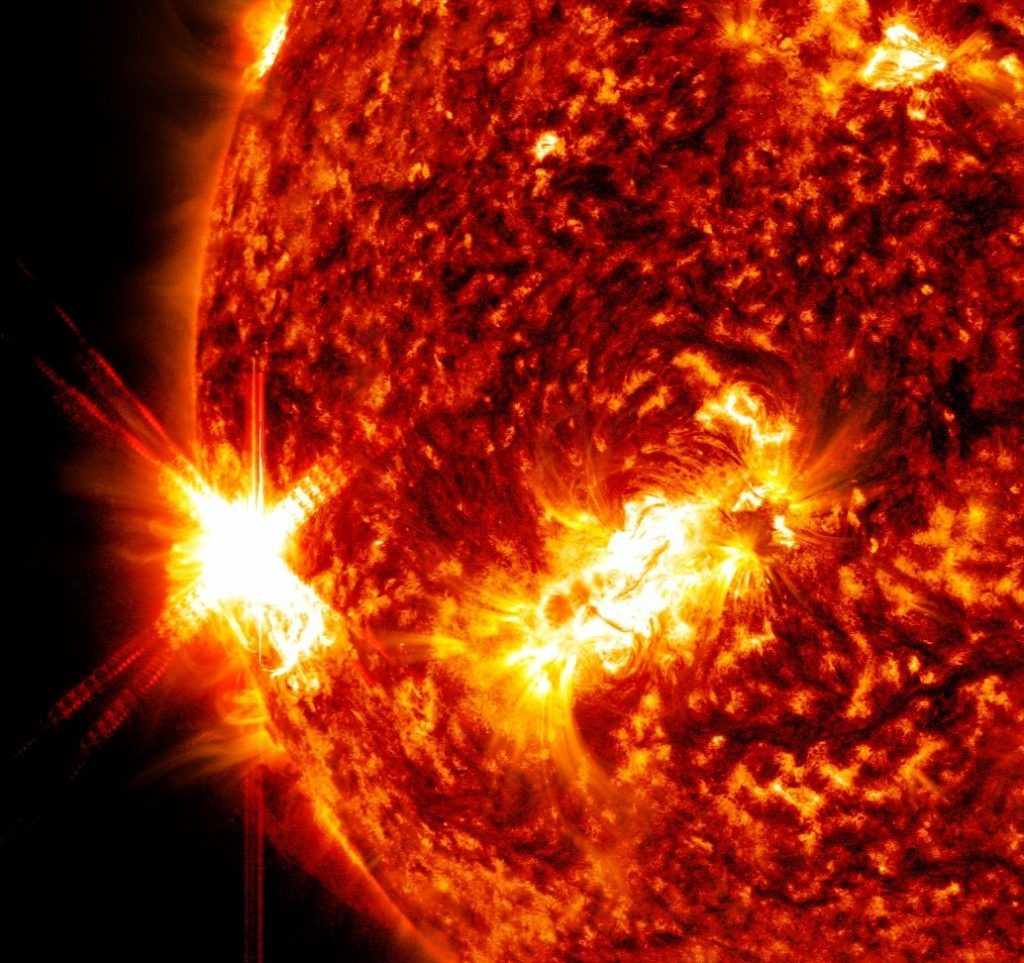
Severe geomagnetic storm hitting Earth could knock out power, electronics worldwide
Rare and powerful geomagnetic storm hitting Earth this weekend could spark power outages across the world, according to scientists. The National Oceanic and Atmospheric Administration (NOAA) upgraded its original G4 geomagnetic storm watch to a G5 -- the most powerful storm of its kind on a scale from G1 to G5. The unusual atmospheric event began late Friday and is expected to last throughout the weekend. NOAA officials said the agency has not issued an alert of this magnitude in more than two decades, with the last G5 storm hitting Earth in October 2003. Read: First ‘extreme’ solar storm in 20 years strikes earth, brings spectacular auroras Scientists said the powerful geomagnetic storm could knock out power and electronics across the globe. They noted that the storm that hit Earth in 2003 caused power outages in Sweden and damaged transformers in South Africa. "Geomagnetic storms can impact infrastructure in near-Earth orbit and on Earth's surface, potentially disrupting communications, the electric power grid, navigation, radio and satellite operations," NOAA said in a statement. The anomalous event could, however, give residents living in the US the rare opportunity to see the aurora borealis, also known as the northern lights. Those as far south as Alabama and Northern California might get a chance to see the spectacular light show. Read: Musk's Starlink satellites disrupted by major solar storm Scientists explained that the northern lights are caused by disturbances in the magnetosphere that shoot solar flares and clouds of magnetic particles generated by the sun into space. The massive and powerful electromagnetic storms light up the sky with a magnificent burst of color. In preparation for the G5 electromagnetic storm, NOAA has alerted power plant operators and spacecraft agencies around the world to take precautions. They said the event could cause widespread voltage control problems, disrupt spacecraft operations and degrade satellite and radio navigation to systems worldwide.

Rare and powerful geomagnetic storm hitting Earth this weekend could spark power outages across the world, according to scientists. The National Oceanic and Atmospheric Administration (NOAA) upgraded its original G4 geomagnetic storm watch to a G5 -- the most powerful storm of its kind on a scale from G1 to G5. The unusual atmospheric event began late Friday and is expected to last throughout the weekend. NOAA officials said the agency has not issued an alert of this magnitude in more than two decades, with the last G5 storm hitting Earth in October 2003. Read: First ‘extreme’ solar storm in 20 years strikes earth, brings spectacular auroras Scientists said the powerful geomagnetic storm could knock out power and electronics across the globe. They noted that the storm that hit Earth in 2003 caused power outages in Sweden and damaged transformers in South Africa. "Geomagnetic storms can impact infrastructure in near-Earth orbit and on Earth's surface, potentially disrupting communications, the electric power grid, navigation, radio and satellite operations," NOAA said in a statement. The anomalous event could, however, give residents living in the US the rare opportunity to see the aurora borealis, also known as the northern lights. Those as far south as Alabama and Northern California might get a chance to see the spectacular light show. Read: Musk's Starlink satellites disrupted by major solar storm Scientists explained that the northern lights are caused by disturbances in the magnetosphere that shoot solar flares and clouds of magnetic particles generated by the sun into space. The massive and powerful electromagnetic storms light up the sky with a magnificent burst of color. In preparation for the G5 electromagnetic storm, NOAA has alerted power plant operators and spacecraft agencies around the world to take precautions. They said the event could cause widespread voltage control problems, disrupt spacecraft operations and degrade satellite and radio navigation to systems worldwide.
